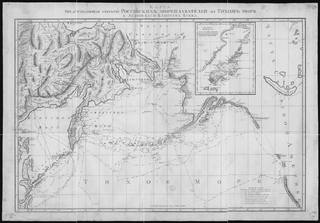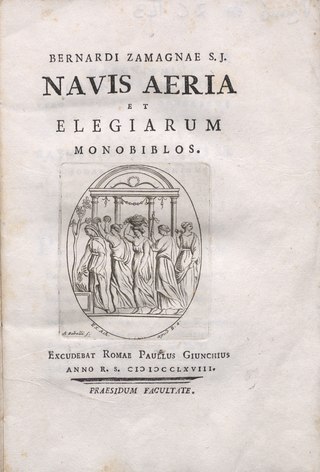
1732 (MDCCXXXII) was a leap year starting on Tuesday of the Gregorian calendar and a leap year starting on Saturday of the Julian calendar, the 1732nd year of the Common Era (CE) and Anno Domini (AD) designations, the 732nd year of the 2nd millennium, the 32nd year of the 18th century, and the 3rd year of the 1730s decade. As of the start of 1732, the Gregorian calendar was 11 days ahead of the Julian calendar, which remained in localized use until 1923.
The year 1850 in science and technology involved some significant events, listed below.

Ivan Fyodorov was a Russian navigator and commanding officer of the expedition to northern Alaska in 1732.
The year 1840 in science and technology involved some significant events, listed below.
The year 1819 in science and technology involved some significant events, listed below.
The year 1769 in science and technology involved some significant events, listed below.
The year 1792 in science and technology involved some significant events.

The year 1768 in science and technology involved some significant events.
The year 1851 in science and technology involved some significant events, listed below.
The year 1875 in science and technology involved some significant events, listed below.
The year 1889 in science and technology involved some significant events, listed below.
The year 1795 in science and technology involved some significant events.
The year 1806 in science and technology involved some significant events, listed below.
The year 1868 in science and technology involved some significant events, listed below.
The year 1844 in science and technology involved some significant events, listed below.
The year 1764 in science and technology involved some significant events.
The year 1761 in science and technology involved some significant events, listed below.
The year 1757 in science and technology involved some significant events.

Gough Island, also known historically as Gonçalo Álvares, is a rugged volcanic island in the South Atlantic Ocean. It is a dependency of Tristan da Cunha and part of the British overseas territory of Saint Helena, Ascension and Tristan da Cunha. It is approximately 400 km (250 mi) south-east of the Tristan da Cunha archipelago, 2,400 km (1,500 mi) north-east from South Georgia Island, 2,700 km (1,700 mi) west from Cape Town, and over 3,200 km (2,000 mi) from the nearest point of South America.

Mikhail Spiridonovich Gvozdev was a Russian military geodesist and a commander of the expedition to northern Alaska in 1732, when the Alaskan shore was sighted by Russians for the first time.




